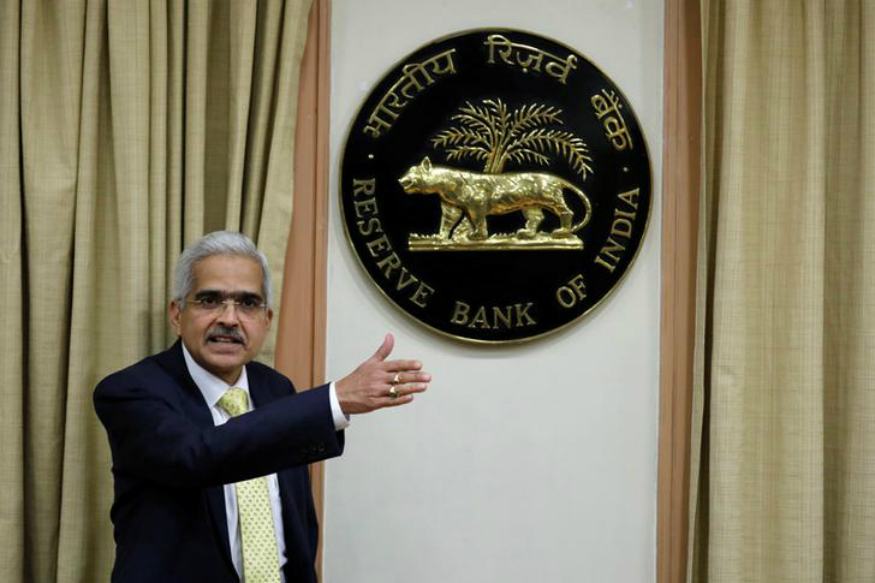
Mr. Amar Ambani, Senior President and Head of Research – Institutional Equities, YES SECURITIES:
With growth slowing and rise in inflationary pressures, RBI expectedly kept a status quo on the policy rates and maintained accommodative stance, signalling continuation of easy financial conditions. Downward revision in FY22 GDP growth projection to 9.5% was quite expected, but seems little optimistic when compared with consensus estimates. Nevertheless, RBI pursued its broad intent of plugging weak spots in the economy by providing on tap liquidity with additional lending to distressed and contact-sensitive sectors.
On inflation, the CPI projection of an average of 5.1% for FY22 looks credible as higher oil and commodity prices is leading to elevated price pressure. Though healthy monsoon and higher crop output may somewhat contain food inflation. Announcement of another round of G-SAP and devolvement of various bond auctions clearly convey RBI’s stance on interest rates and government borrowing costs.
On the repo rate, we have hit the floor, with further rate cut completely ruled out given the prevalent negative real interest rates. With the space for traditional monetary policy being constricted, we expect the RBI to continue to use its balance sheet to keep financial market conditions easy.
RBI’s monetary policy today was along expected lines with status quo on rates and continued accommodative stance. While the central bank acknowledged that the spread of Covid-19’s second wave into rural areas had brought forth downside risks and a slight reduction in GDP estimates for the year, the forecast of a normal monsoon bodes well for pickup in demand indicators going ahead. In continuation of a slew of measures taken by RBI since the start of the pandemic to better mitigate its impact on businesses & economy, there were additional ones announced today such as a separate liquidity window of Rs. 15,000 crore for certain contact-intensive sectors like supply chain, private bus operators, rent-a-car service providers, vehicle repair services among others. Such steps will keep liquidity abundant and financing conditions congenial necessary for preserving financial stability of all stakeholders.
Mr. Harsh Vardhan Patodia, President, CREDAI National quote on today’s RBI Monetary Policy: “RBI continues to maintain an accommodative stance as it is crucial to mitigate the impact of COVID Pandemic. Focus on equitable distribution of liquidity is expected to solve the fund shortage crisis to an extent. Modifying the ECLGS scheme and clear instructions to banks & other financial institutions on sanctioning funds to labour intensive sectors like Real Estate is the need of the hour. Moratorium on principal & interest for 6 months and freezing of SMA classification for another year will aid revival of businesses and thus the economy. The impact of the second wave on large businesses which provide millions of livelihoods is a lot deeper than it appears. MSMEs are staying afloat with the much needed support from the Government. Growing retail inflation coupled with increasing unemployment rates call for immediate & drastic measure from the Central bank.”
Dr. Rajeev Singh, Director General, Indian Chamber of Commerce (ICC) on the RBI Monetary policy: At bi-monthly monetary policy review today, RBI has projected India’s GDP growth at 9.5 per cent for the ongoing Financial Year of 2021-2022.
Indian Chamber of Commerce (ICC) highly appreciates Apex Bank’s decision to step up its efforts to ensure liquidity in the system with another G-SAP worth Rs. 1.2 lakh crore planned for this fiscal year.
In addition to that, RBI has kept the repo rate unchanged at 4 per cent. Which, ICC feels shall further help home buyers. As prevailing low home loan rates are already enticing for homebuyers, with inflation set to be high and economic recovery slow due to surge of Covid, residential real estate will continue to attract investment as it is a safe-haven asset.
As an industry body, we highly appreciate Central Bank’s decision to increase the maximum aggregate exposure threshold under the resolution framework 2.0. As a result, individual and MSME borrowers’ loan (up to Rs 50 crore) can be able to opt for restructuring.
The Reserve Bank of India will also purchase the remaining Rs. 40,000 crore worth of government securities under the G-SAP 1.0 on June 17. In this, Rs. 10,000 crore would constitute purchase of State Development Loans (SDLs).The inclusion of SDL on G-SAP would support state government borrowings from the market. Considering increasing debt burden of the States, this policy measure will be really effective.
RBI said that it will open a special liquidity window of Rs. 15,000 crore till March 30, 2022, with tenors of up to 3 years at the repo rate. Under this banks can provide lending support to hotels, restaurants, travel firms, aviation ancillary services and other services that include private bus operators, car repair services, spa, and saloons. As an industry body, ICC highly appreciates this decision. It would go a long way in supporting cash strapped Hospitality industry.
We also feel that the announcement of G-SAP 2.0 to the tune of Rs. 1.2 lakh crores will ensure adequate liquidity in the system. Upward revision of inflation rate will raise bond yields marginally in the short run.
";

.jpg)